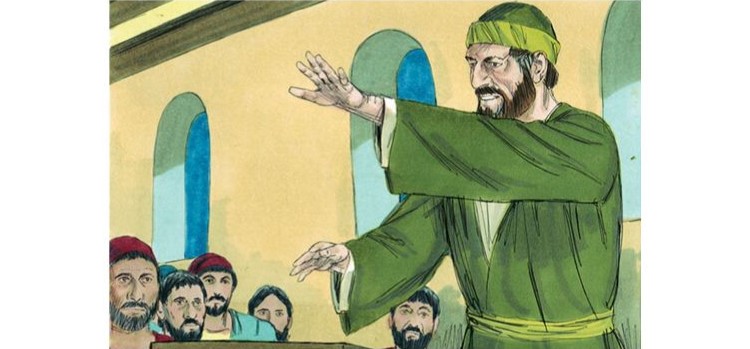John, the beloved disciple, was banished on the Isle of Patmos when he wrote, “I was in the Spirit on the Lord’s day, and heard behind me a great voice as of a trumpet” (Revelation 1:10). The Revelation was given to John on this wonderful occasion. The “Lord’s day” specifically referred to the first day of the week, or Sunday.
Saturday, the last day of the week, had special significance to the Jews who lived under the Old Law and were bound by commandment to keep the Sabbath as a sacred day of rest and worship. After the coming of Jesus Christ, Christians no longer lived under the law nor were subject to its mandates. The early Christians made a new tradition of gathering for worship on the first day of the week and referred to it as the “Lord’s Day”.
Sunday also had special significance to the believers as it was on the first day of the week after His crucifixion the Lord Jesus was resurrected from the grave. “Now upon the first day of the week, very early in the morning, they came unto the sepulchre…. And they found the stone rolled away from the sepulchre. And they entered in, and found not the body of the Lord Jesus” (Luke 24:1-3).
Sunday gained even more importance as a special day because the Holy Spirit was poured out on the Christian believers on the day of Pentecost (Acts 2:1-4) which occurred on the first day of the week. The Feast of Weeks, or Pentecost, was an agricultural celebration that according to Jewish tradition also commemorated the giving of the law on Mount Sinai. It was celebrated fifty days after the Passover. In a beautiful parallel, Christ was crucified for the sins of mankind during the Passover. Subsequently, on Pentecost the Holy Spirit descended and wrote the divine law of God in the hearts of the believers.
For these reasons, it is very understandable why the followers of Christ began to worship on Sunday instead of Saturday. They were not bound to keep the Sabbath and the first day of the week had much more meaning and significance to them.
Scripturally, the early morning church is found worshipping on Sunday. “And upon the first day of the week, when the disciples came together to break bread, Paul preached unto them, ready to depart on the morrow; and continued his speech until midnight” (Acts 20:7). Paul instructed the saints in I Corinthians 16:1-2, “Now concerning the collection for the saints, as I have given order to the churches of Galatia, even so do ye. Upon the first day of the week let every one of you lay by him in store, as God hath prospered him, that there be no gatherings when I come.” Their offerings were gathered on Sunday as opposed to the old Sabbath day and there was a clear pattern of the saints meeting and worshipping on Sunday.
Since the time of Christ, there has been a tradition in the Christian world to set aside Sunday, the Lord’s Day, as a special time of collective worship. While there is no command in the scripture for this, as there was for keeping the Sabbath in the Old Testament, the scripture does teach not to forsake the assembling of ourselves together (Hebrews 10:25).
Nothing is wrong with meeting to worship on days other than Sunday, but there is something clearly wrong with congregations who meet on Saturday as a form of Sabbath keeping. They are holding to a law that is passed away and there is no righteousness in the day itself. In seeking to keep an outward form of the law, they miss the greater truth of the freedom and true righteousness in Jesus Christ.
While some Christians may meet on other days out of expediency to the laws of the land or according to a different work week, such as in some Muslim countries, all can experience the beauty and liberty of the Lord’s Day every day of the week.
—mws
Image from www.sweetpublishing.com






